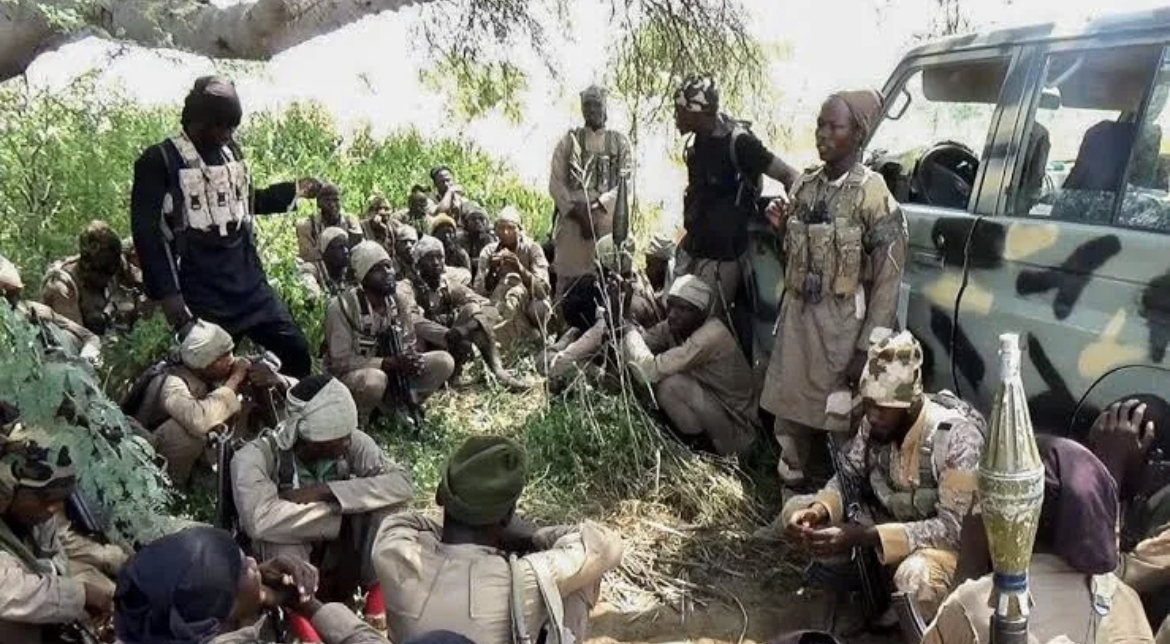If USAID Funded Terrorism, What Does That Mean for Nigeria’s Security?
The recent allegations by U.S. Congressman Scott Perry that the United States Agency for International Development (USAID) may have funded terrorist groups, including Boko Haram, are deeply unsettling.
He made explosive allegations that the USAID funded terrorist organizations, including Boko Haram.
Perry, a Republican representing Pennsylvania, made the claims during the inaugural hearing of the Subcommittee on Delivering on Government Efficiency on Thursday.
BREAKING: DOGE Investigation Finally Forces Congress To Admit To The US Government’s Long History Of Financing Al-Qaeda, The Taliban, & ISIS
» WATCH/SHARE THE LIVE X STREAM HERE:https://t.co/5LOs5d45a8 pic.twitter.com/BXAVcwr4AK
— Alex Jones (@RealAlexJones) February 14, 2025
The hearing, titled “The War on Waste: Stamping Out the Scourge of Improper Payments and Fraud,” focused on alleged misappropriations of taxpayer funds.
Perry accused USAID of funneling money to terrorist groups, stating, “Who gets some of that money? Does that name ring a bell to anybody in the room? Because your money, your money, $697 million annually, plus the shipments of cash funds in Madrasas, ISIS, Al-Qaeda, Boko Haram, ISIS Khorasan, terrorist training camps. That’s what it’s funding.”
If true, this would mean that an organization meant to provide humanitarian aid has, knowingly or unknowingly, contributed to the very violence that has devastated Nigeria’s northeastern region for over a decade.
For years, Nigeria has battled Boko Haram, a militant group responsible for thousands of deaths and the displacement of millions. The group has burned villages, kidnapped schoolchildren, and terrorized communities, leaving behind a trail of grief and destruction. The Nigerian government, alongside international allies, has poured resources into fighting insurgency. If Perry’s claims are accurate, however, some of that funding may have actually gone into the pockets of those causing the destruction.
Why This Allegation Matters
Foreign aid is supposed to uplift struggling communities, not enable their suffering. USAID has long been a major partner in Nigeria’s development, providing funding for education, healthcare, and economic growth. If funds meant for these purposes ended up supporting extremists instead, it raises serious concerns about oversight and accountability.
Perry’s accusations aren’t just about wasted American taxpayer money. They question whether Nigerian lives have been put at even greater risk by well-meaning but poorly managed aid programs. If USAID has truly failed to monitor where its money goes, then the Nigerian government must take this as a wake-up call.
What It Means for Nigeria’s Fight Against Terrorism
If these allegations are proven, they could fundamentally change Nigeria’s approach to security and foreign partnerships. First, it would demand greater scrutiny of all international aid programs operating in Nigeria. How much money has been funneled into the country under the guise of humanitarian assistance? Have similar mistakes been made by other agencies?
Second, Nigeria must take more responsibility for funding and managing its own security operations. The country cannot afford to rely solely on international donors if there’s even a chance that some of these funds are being redirected to its enemies. The Nigerian government must strengthen its intelligence-gathering capabilities and ensure better transparency in how foreign aid is used.
A Lesson for the Future
At its core, this situation highlights the dangers of blind trust in foreign aid. While international partnerships are valuable, they must be built on accountability, not assumptions. Nigeria should use this moment to demand clear reports on how USAID’s funds are spent and to reevaluate its reliance on foreign assistance in critical sectors.
For ordinary Nigerians, especially those in regions terrorized by insurgents, this news is more than just another political scandal—it is a potential explanation for why terrorism has remained so difficult to defeat. If Perry’s allegations hold water, then the world owes Nigeria more than just an apology. It owes a full investigation, justice for the victims, and a commitment to ensuring such a grave mistake never happens again.

